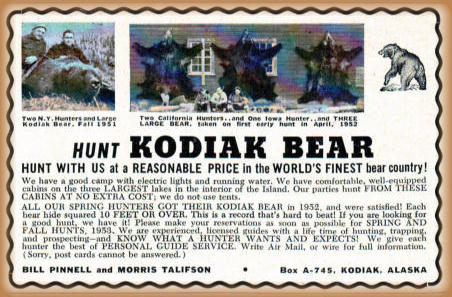

 The Accurate Reloading Forums
The Accurate Reloading Forums  THE ACCURATE RELOADING.COM FORUMS
THE ACCURATE RELOADING.COM FORUMS  Hunting
Hunting  Outfitters - Offered and Discounted Hunts
Outfitters - Offered and Discounted Hunts  The Namibian Situation -- Update & Opportunity
The Namibian Situation -- Update & OpportunityGo  | New  | Find  | Notify  | Tools  | Reply  |  |
| One of Us |
Just returned from 11 days in the Kalahari desert with Kalahari Hunting Safaris. Our PHs were Johan and Hendrik Kotze and Deon van Wyk. We found plenty of game, and were able to test both short range and long range shooting skills (springbok at 840 yards -- an record for the Kalahari lodge). It was a good hunt and a great experience. Namibia is reeling from the worst drought since 1896, according to local ranchers. We moved our hunt from the Khomas Hochland to the Kalahari because there was no food for the animals there. Many ranchers have sold all or most of their cattle and sheep, because wild game fares better in the drought conditions with limited food than does domestic livestock. Some ranchers are uprooting acacia thorn bushes, an invasive species, chainsawing off the roots, running the brush though a chipper and then a hammer mill to pulverize the thorns, and then mixing the pulpy mixture with molasses, alfalfa, corn and supplements to provide supplemenral feed for the remaining livestock and wild game. While the game in the Kalahari is now in good shape, any delay in the anticipated December rains will put great stress on the gemsbok, hartebeest, wildebeest, springbok and zebra herds. Realizing the unpredictability of rain in a very dry climate, the game ranchers and professional hunters are facing the possibility of substantial deaths in their wild game herds later this year. Their choice seems to be reduce the price in the hopes of attracting late season hunters vice watching the animals perish for lack of graze in December. That is the bad news. The good news is that normal prices for most Kalahari species are greatly reduced, with a hunting season that can extend through November. While temperatures will be warmer, early morning and late evening hunts should still be comfortable through November. For the hunter who has the ability and resources to react in the next two or three months, there are some really good prices available on Namibian plains game. Just thought you'd want to know. | ||
|
| One of Us |
Interesting and not unexpected. I was in the Orupembe conservancy this past June with Anton Esterhuizen of Estreux Safaris. It was already very dry and has gotten worse. The livestock are really starting to die off now. There should be some really good cull hunt opportunities this year and they could use our business. Anton even heard from a reliable source that their was talk of auctioning off cull hunts inside of Etosha park. The idea is to thin the herds to survivable numbers rather than have a massive die off. STAY IN THE FIGHT! | |||
|
| One of Us |
I think such hunts would book up fast if posted on AR. Tom Z NRA Life Member | |||
|
| One of Us |
I was there in June. the area had received less than 2 inches of rain this year and it was not looking promising. It was not a good situation for any animal that depended on grass to survive. Dead animals were all over the place, some that we walked up on could not get up and were just waiting to die. We did find some good head as we were tracking eland. I am still thinking that i should have taken a Black Wildebeest that had a very good set of horns. Like i told them i already had two on the wall and i was after trophies that i have not taken before. >>>>>>>>>>>>>> "You've got the strongest hand in the world. That's right. Your hand. The hand that marks the ballot. The hand that pulls the voting lever. Use it, will you" John Wayne | |||
|
| new member |
Thank you for the update and the kind words Bill. Yes the drought situation here left us few choices --in the end it is actually better to harvest as many as possible animals to give the remaining animals a better chance to survive . Anybody interested to make use of this opportunity please contact me at khsjohan@gmail.com or my son Hendrik at kotzehn@gmail.com. THANKS Johan | |||
|
| Powered by Social Strata |
| Please Wait. Your request is being processed... |
|
 The Accurate Reloading Forums
The Accurate Reloading Forums  THE ACCURATE RELOADING.COM FORUMS
THE ACCURATE RELOADING.COM FORUMS  Hunting
Hunting  Outfitters - Offered and Discounted Hunts
Outfitters - Offered and Discounted Hunts  The Namibian Situation -- Update & Opportunity
The Namibian Situation -- Update & Opportunity

Visit our on-line store for AR Memorabilia

